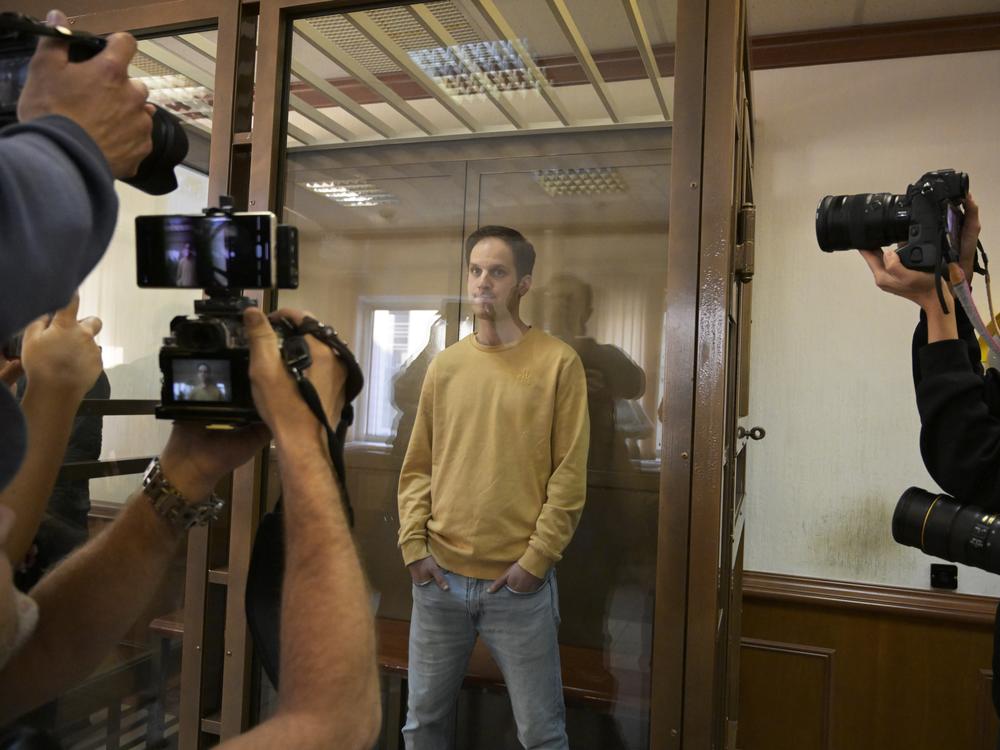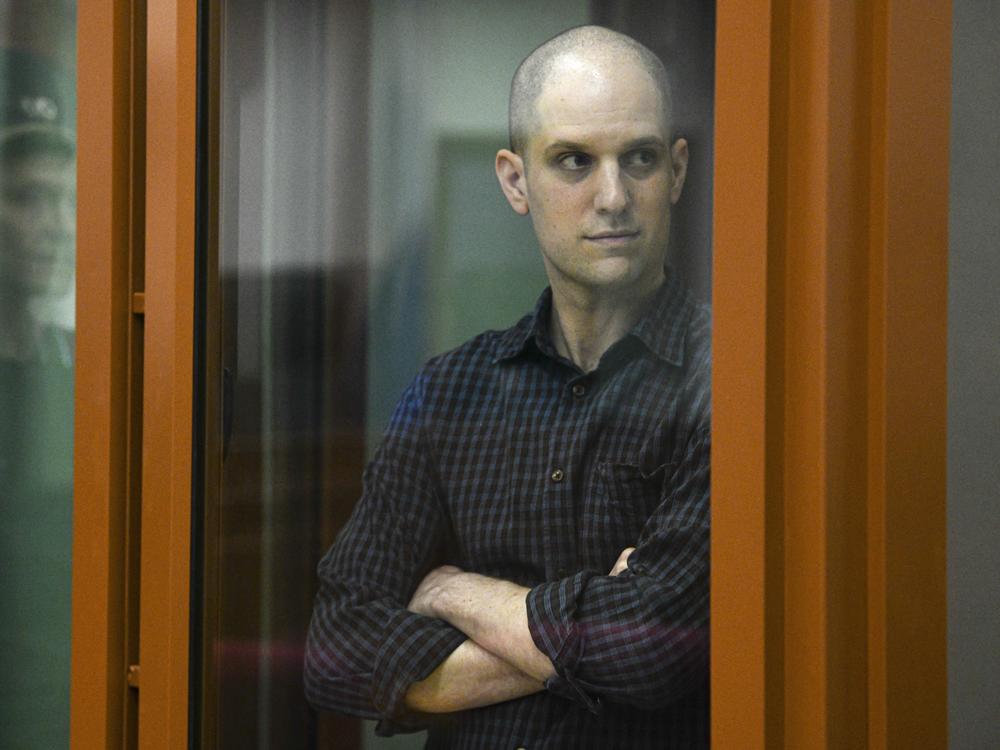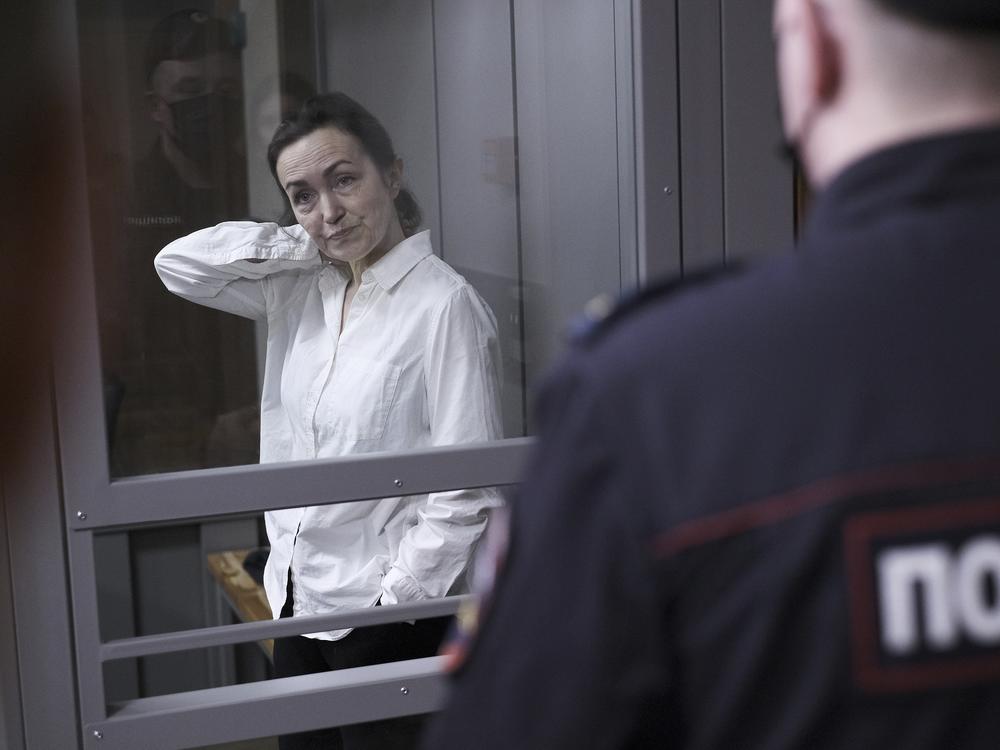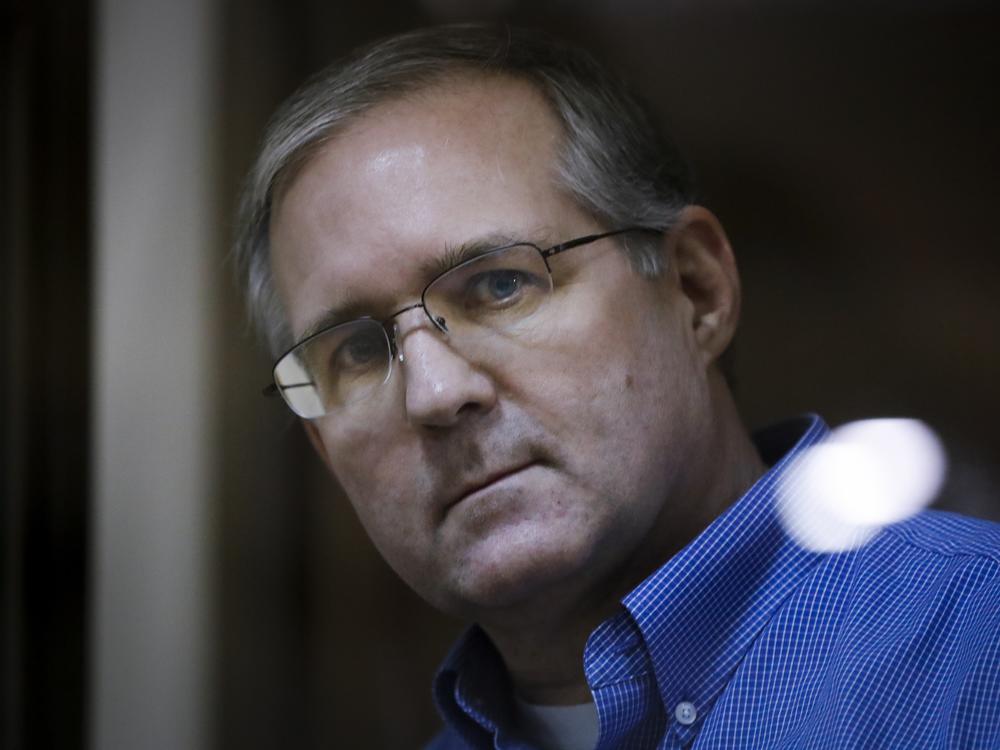Section Branding
Header Content
Who's who in the prisoner swap that has freed Evan Gershkovich from Russian prison
Primary Content
Three U.S. citizens and one legal permanent resident will be returning home from Russia as part of a massive prisoner swap that is one of the largest of its kind since the end of the Cold War.
The agreement announced Thursday involves at least 16 political prisoners who had been jailed in Russia in exchange for eight Russians held in the U.S., Germany, Norway, Poland and Slovenia.
Among those being freed are the American journalist Evan Gershkovich, who was detained in Russia last year and accused of espionage, and Paul Whelan, a former Marine who has been in Russian captivity since 2018.
"Some of these women and men have been unjustly held for years. All have endured unimaginable suffering and uncertainty," President Biden said in a statement announcing the prisoner swap. "This is a powerful example of why it’s vital to have friends in this world whom you can trust and depend upon."
Here is what we know about those being let go:
Evan Gershkovich
Gershkovich is a reporter for the Wall Street Journal who was detained in Russia on March 29, 2023, while on assignment for the paper. He was detained by Russia’s Federal Security Service in the city of Yekaterinburg and accused of espionage. In July, he was sentenced to 16 years in prison.
Gershkovich — the American-born son of Soviet-era emigres to the U.S — and the Wall Street Journal have consistently denied the allegations against him. So too has the U.S. government, which designated Gershkovich as wrongfully detained.
Vladimir Kara-Murza
Kara-Murza is a vocal critic of the Kremlin and Pulitzer Prize-winning contributor to The Washington Post who in 2023 was sentenced to 25 years in a Russian penal colony after authorities accused him of treason and spreading “fake” information about the Russian military.
He has long spoken out against what he says is a Kremlin policy of assassinating its political enemies, and has drawn the ire of Russian authorities for calling on Western governments to sanction Moscow for human-rights abuses.
In 2022, he gave an interview to CNN from Moscow in which he called the government of Russian President Vladimir Putin a “regime of murderers.” Within hours, he was under arrest.
Alsu Kurmasheva
Kurmasheva is a Russian-American journalist who works for the federally funded Radio Free Europe/Radio Liberty. She was arrested in October and charged with spreading “false information” about the Russian military under a law passed just days after the Russian invasion of Ukraine that effectively criminalized criticism of the war.
She was also charged with failing to register as a foreign agent. Last month, she was sentenced to 6 1/2 years in prison after a trial that reportedly lasted just two days. Her family, her employer and the U.S. government have all denied the charges against her.
Paul Whelan
Whelan is a former U.S. Marine who was arrested on Dec. 28, 2018, while traveling to attend the wedding of a fellow Marine to a Russian woman. Russian authorities accused Whelan of espionage, and in June 2020 he was convicted and then sentenced to 16 years in prison.
He was arrested at Moscow’s upscale Metropol Hotel after he was given a thumb drive from a friend that he believed had photos of Russian churches, but actually contained “state secrets,” according to his lawyer. Whelan has maintained his innocence and the U.S. government has said he was convicted on fabricated charges.
“Russia says it caught James Bond on a spy mission,” Whelan said during a memorable court appearance in 2019. “In reality, they abducted Mr. Bean on holiday.”
12 German nationals will also be freed
A dozen German nationals who became Russian political prisoners are also being released. They include:
Liliya Chanysheva, Kseniya Fadeyeva, Rico Krieger, Kevin Lick, Herman Moyzhes, Oleg Orlov, Vadim Ostanin, Andrey Pivovarov, Patrick Schoebel, Sasha Skochilenko, Dieter Voronin and Ilya Yashin.
The U.S. is releasing 3 Russians
As part of the prisoner swap, eight Russians will be returning home. Three will be released from U.S. prisons: Vladislav Klyushin, Vadim Konoshchenok and Roman Seleznev.
Klyushin was sentenced to nine years in prison in 2023 for what the Justice Department called “an elaborate hack-to-trade” scheme that netted the Russian businessman $93 million in ill-gotten gains. The DOJ said Klyushin made those profits off of trades that were based on confidential corporate intel stolen from U.S. computer networks.
Konoshchenok, a suspected Russian intelligence operative, was extradited to the U.S. from Estonia last year to face charges stemming from an alleged procurement and money laundering scheme. The Justice Department said he was “a critical participant in a scheme to provide sensitive, American-made electronics and ammunition in furtherance of Russia’s war efforts and weapons development.”
Seleznev has been serving a 27-year prison sentence for running a vast credit-card and identity-theft operation. Federal prosecutors say his crimes led to the theft and resale of more than 2 million credit card numbers — with losses of at least $170 million, but potentially in the billions. His victims included more than 4,000 financial institutions and businesses around the world.
In addition to those being released from American prisons, five others will be released from Germany, Norway, Poland and Slovenia. German authorities have agreed to release Vadim Krasikov, a suspected Russian state assassin who was serving a life sentence for the 2019 killing in Berlin of a Georgia citizen of Chechen origin.
Norway is releasing Mikhail Valeryevich Mikushin; Poland will free Pavel Alekseyevich Rubtsov; and Slovenian authorities will let go Anna Valerevna Dultseva and Artem Viktorovich Dultsev.





